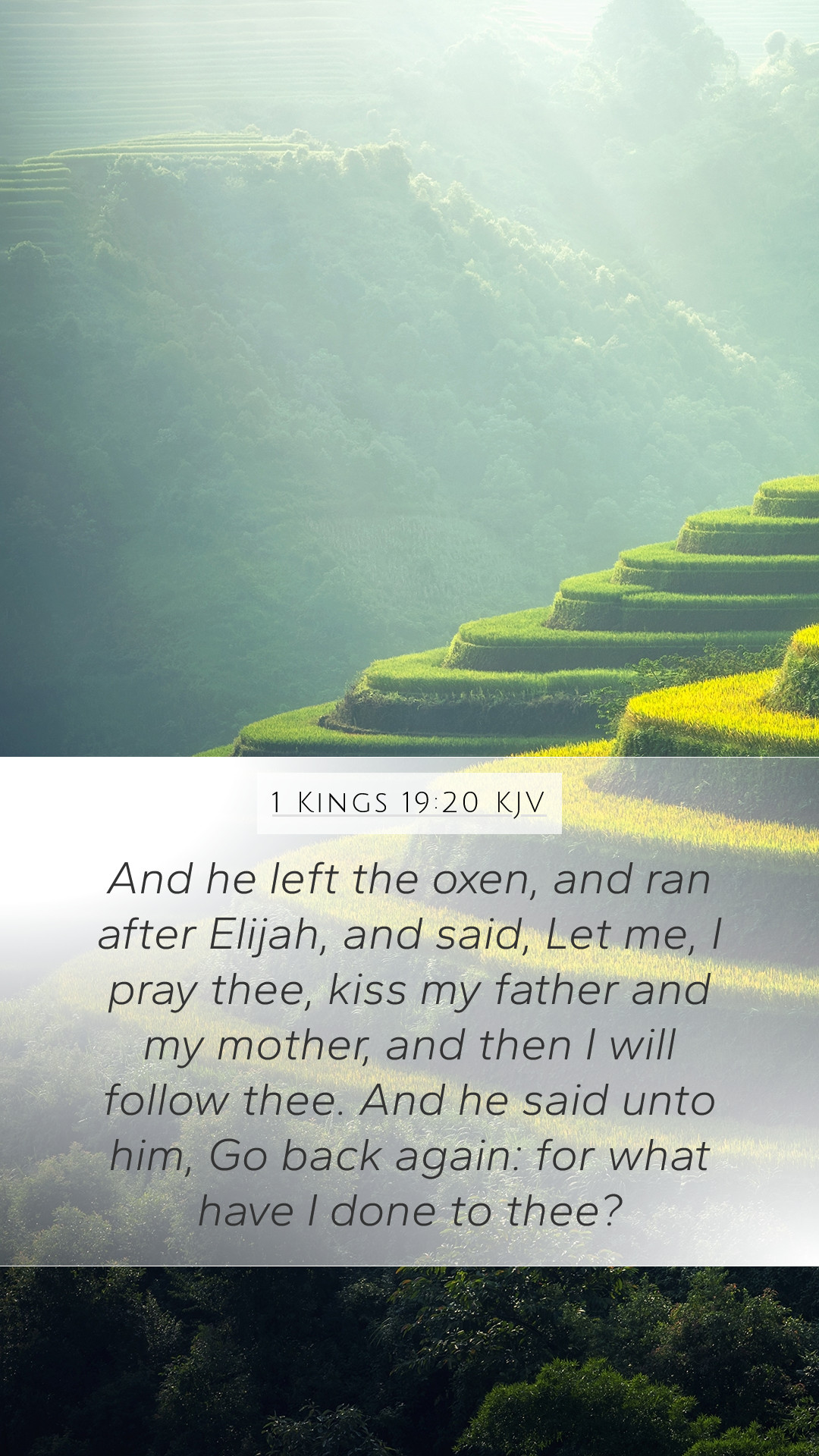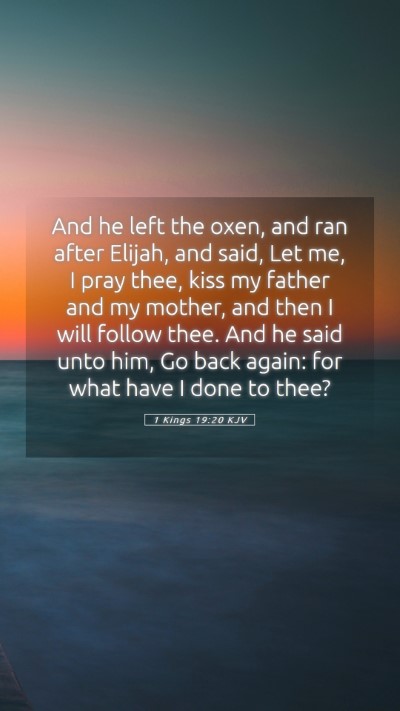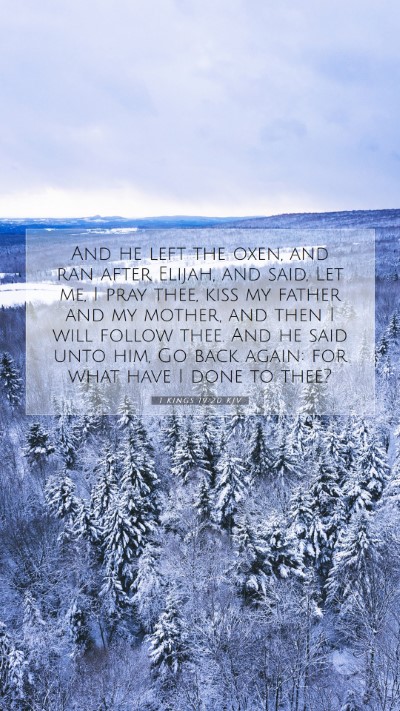Old Testament
Genesis Exodus Leviticus Numbers Deuteronomy Joshua Judges Ruth 1 Samuel 2 Samuel 1 Kings 2 Kings 1 Chronicles 2 Chronicles Ezra Nehemiah Esther Job Psalms Proverbs Ecclesiastes Song of Solomon Isaiah Jeremiah Lamentations Ezekiel Daniel Hosea Joel Amos Obadiah Jonah Micah Nahum Habakkuk Zephaniah Haggai Zechariah Malachi1 Kings 19:20 Meaning
What is the meaning of 1 Kings 19:20?
And he left the oxen, and ran after Elijah, and said, Let me, I pray thee, kiss my father and my mother, and then I will follow thee. And he said unto him, Go back again: for what have I done to thee?
1 Kings 19:20 Bible Verse Meaning
Understanding 1 Kings 19:20 - Bible Verse Commentary
1 Kings 19:20 states: "And he left the oxen and ran after Elijah, and said, Let me, I pray thee, kiss my father and my mother, and then I will follow thee. And Elijah said unto him, Go back again: for what have I done to thee?"
This verse marks a pivotal moment in the calling of Elisha as a prophet following Elijah. It encapsulates themes of divine calling, the urgency of God's work, and the personal sacrifices required to answer that call. Below is a synthesized commentary derived from public domain sources to delve into the meanings, interpretations, and insights of this scripture.
Contextual Background
In the preceding chapters, Elijah the prophet has witnessed God’s power in various ways, including the defeat of Baal's prophets and the subsequent divine revelation. Amidst the hostility he faced, God directs him to anoint Elisha as his successor, symbolizing the continuity of prophetic ministry in Israel.
Verse Analysis
-
Personal Decision:
Elisha's response signifies a personal decision to follow God’s plan over familial duties. His request to say goodbye to his parents reflects a natural human inclination towards familial ties, yet he shows a willingness to prioritize his divine calling.
-
Elijah's Response:
Elijah's reply, "What have I done to thee?", indicates neither coercion nor undue pressure in Elisha's calling. Instead, it acknowledges God’s sovereign role in calling His prophets, suggesting a response that must come from Elisha's own heart.
Theological Insights
From various biblical commentaries, we can infer several key theological insights from this verse:
-
Covenantal Loyalty:
Elisha's leaving his oxen signifies a break from his former life to enter into a covenantal relationship with God, mirroring the call of the disciples in the New Testament.
-
Urgency of the Call:
This verse emphasizes the urgency with which we are to pursue God’s cause. Just as Elisha had to act promptly, believers are urged to respond without delay to God's invitation to service.
Applications for Believers
1 Kings 19:20 holds significant applications for contemporary believers:
-
Responding to God's Call:
Like Elisha, individuals today must discern and respond to God's call, which may require leaving behind comfort and security.
-
Balancing Obligations:
This passage invites reflection on how to balance familial responsibilities with the commitment to God’s mission, encouraging believers to prioritize their spiritual calling.
Cross References
Several other Bible verses that provide additional context or thematic links include:
- Luke 9:62 - The call to discipleship and the importance of unwavering commitment.
- 1 Samuel 3:10 - God’s calling of Samuel as a prophet.
- Matthew 4:19-20 - The calling of the first disciples parallels Elisha's calling.
Conclusion
1 Kings 19:20 is a profound reminder of the nature of divine calling and the personal sacrifices involved in following God's direction. Understanding this verse encourages deeper Bible study insights and enhances our grasp of Scripture’s meanings and applications in daily life.


